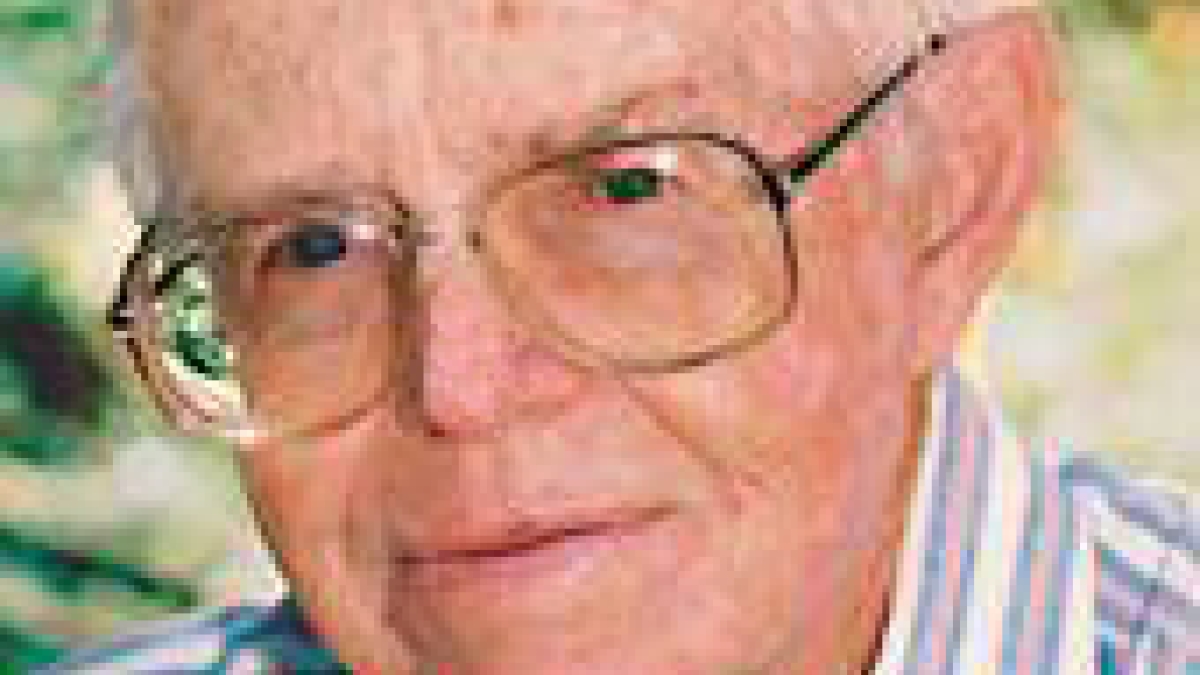Remembering Donald Morris, ASU's first bioarchaeologist

Arizona State University professor emeritus Donald Morris passed away at his home Aug. 30, 2014. He was 85.
An Arizona native, Morris served in the U.S. Army during the Korean Conflict and earned a doctorate in anthropology from the University of Arizona.
He came to ASU in 1960 and was active faculty until his retirement in 2004. With a field of expertise spanning physical anthropology and archaeology, he was effectively the university’s first bioarchaeologist.
Morris helped establish a strong dental component in the ASU physical anthropology program, and was integral to building its renowned dental cast collection by traveling abroad to add Asian, Bushmen and Bantu casts to previously collected Tohono O’odham specimens.
ASU alumna and bioarchaeologist Lorrie Lincoln-Babb explains that Morris was well-known for finds related to dental morphological traits of the maxillary canines and premolars. “Dr. Morris recognized certain characteristics of the Bushman Maxillary Canine and the Uto Aztecan Premolar were largely specific to particular geographical populations: indigenous South African and indigenous Southwest United States, respectively. These discoveries remain relevant to this day.”
Though Morris’ interests and specializations were wide, Arizona was his primary focus. His love for his native land showed in his Western wardrobe, enjoyment of ranch life and expansive knowledge of the state.
According to professor emeritus Charles Merbs, “Traveling somewhere with Don was always an education because he knew the state, especially its prehistory, so well. As we passed the entrance to the Fort McDowell Reservation, for example, he would point to the right and say, ‘See that mesa over there? There is an interesting Hohokam site up there.’ He would then describe it in detail.”
That intimate knowledge of the Southwest made Morris a treasured teacher and guide. Whether leading a field trip to hunt for Miocene fossils – and uncovering the jaw of a primitive camel – or assisting with excavations and field school activities at Chavez Pass, his vast experience put sites into proper cultural and temporal context for students.
Morris’ legacy lives on in many ways in the School of Human Evolution and Social Change in the College of Liberal Arts and Sciences (formerly the Department of Anthropology).
One testament is the award named in his honor. Each spring, the Donald H. Morris Award is presented to two academically outstanding graduate students, one each in bioarchaeology and evolutionary anthropology.
A much beloved figure, Morris was respected not only for his scholarship, but also for his kindness, wry sense of humor, diplomacy and accessibility.
Morris could be counted on to be in his office every school day with the door open for students and colleagues, as well as the public.
“Hardly a week passed when someone didn’t contact us about some ‘amazing’ find they made, and usually it was nothing,” Merbs states. “Don took the time to examine their finds and explain patiently what a great jokester nature was. But every now and then, the object brought in was a real artifact or fossil, sometimes truly remarkable, and Don’s patience paid off.”
Morris’ retirement party was organized by ASU primatologist Leanne Nash and held at the home of archaeologists Barbara Stark and Geoffrey Clark. The three professors, now emeriti, say the occasion was an unforgettable gathering that marked the end of an era, the last retirement party before the department transformed into an interdisciplinary school.
Stark remembers the event being exceptionally well attended, with past students coming from out of state to see and congratulate Morris. She calls the sizable affair a reflection of the high regard in which he was held as a peer and mentor.
“One of the things we presented to Don was a book of letters from students, and there were at least 30 of them,” Nash notes. “It was an impressive pile.”
Colleagues agree that first and foremost in Morris’ career was his enjoyment in connecting with – and investing in – those he taught. Many of the resultant relationships endured over the years and still stir fond memories and feelings of gratitude.
“Dr. Morris touched many students’ lives and outlooks in a subtle yet strong and lasting way,” says former student and bioarchaeologist Korri Turner, who credits his influence with shaping her professional life.
Morris leaves behind his wife of 58 years, Evelyn; their son, Brian; and scores of appreciative former students and colleagues. Visit azcentral.com to read his obituary and sign his guest book.